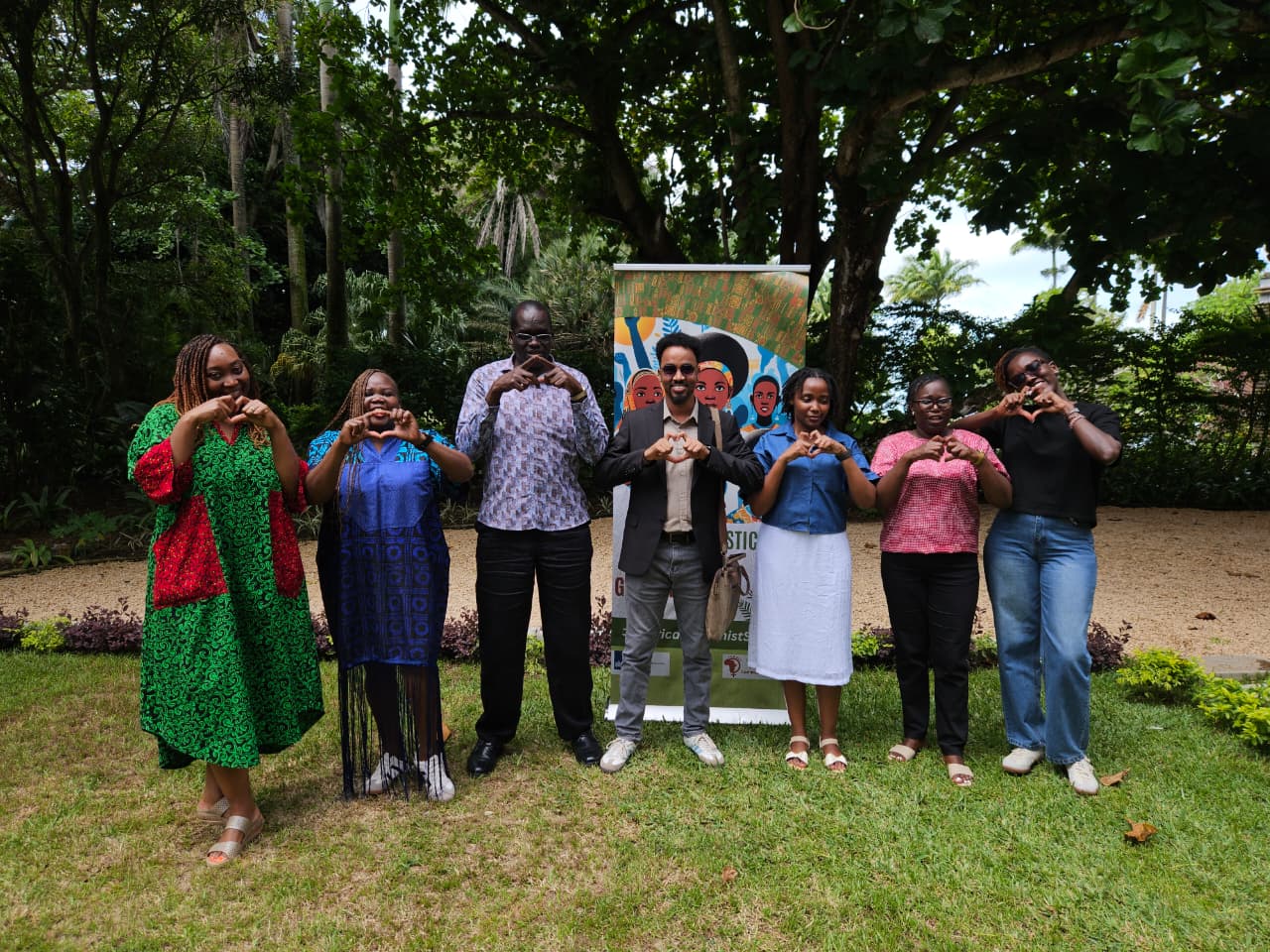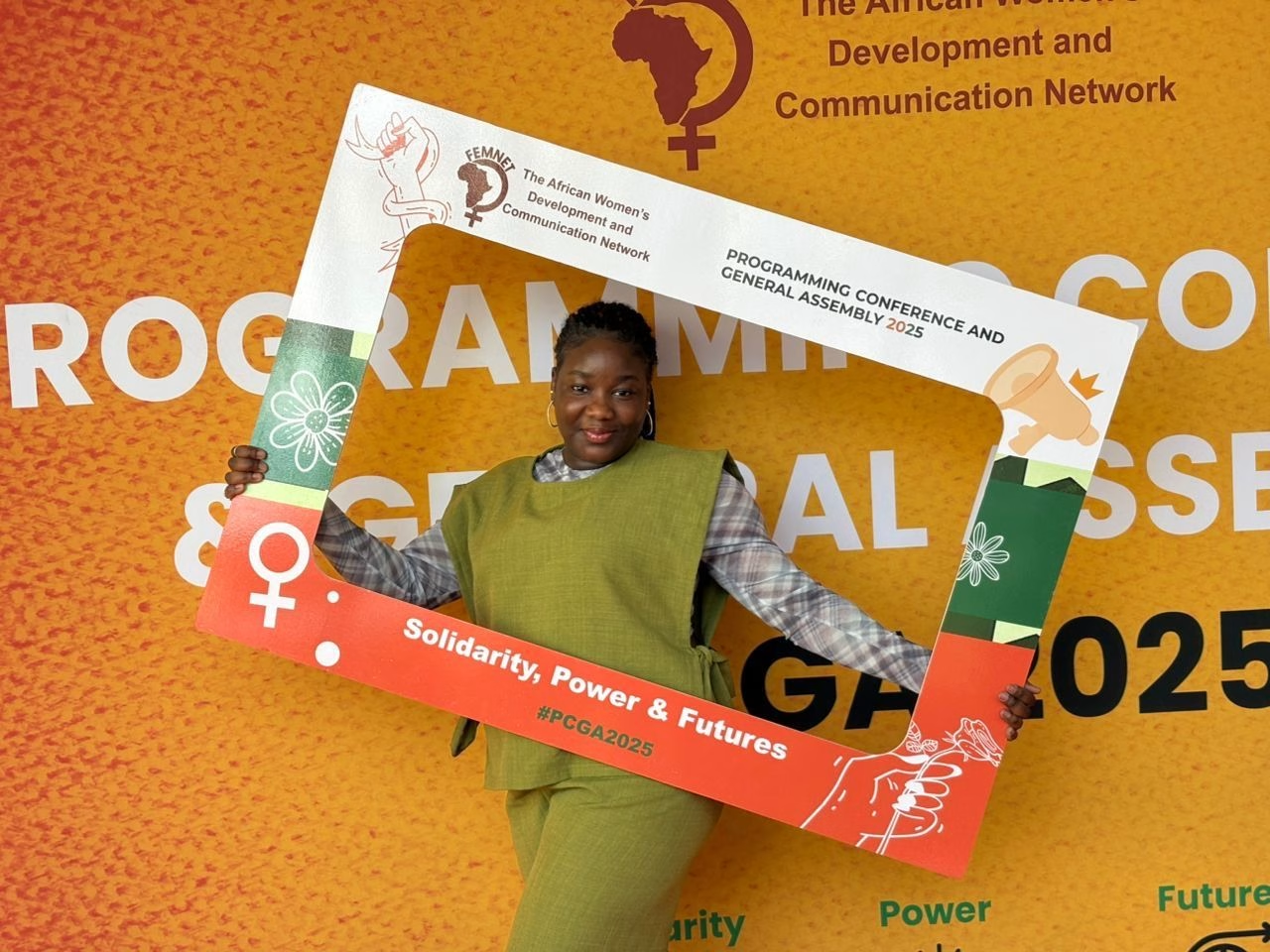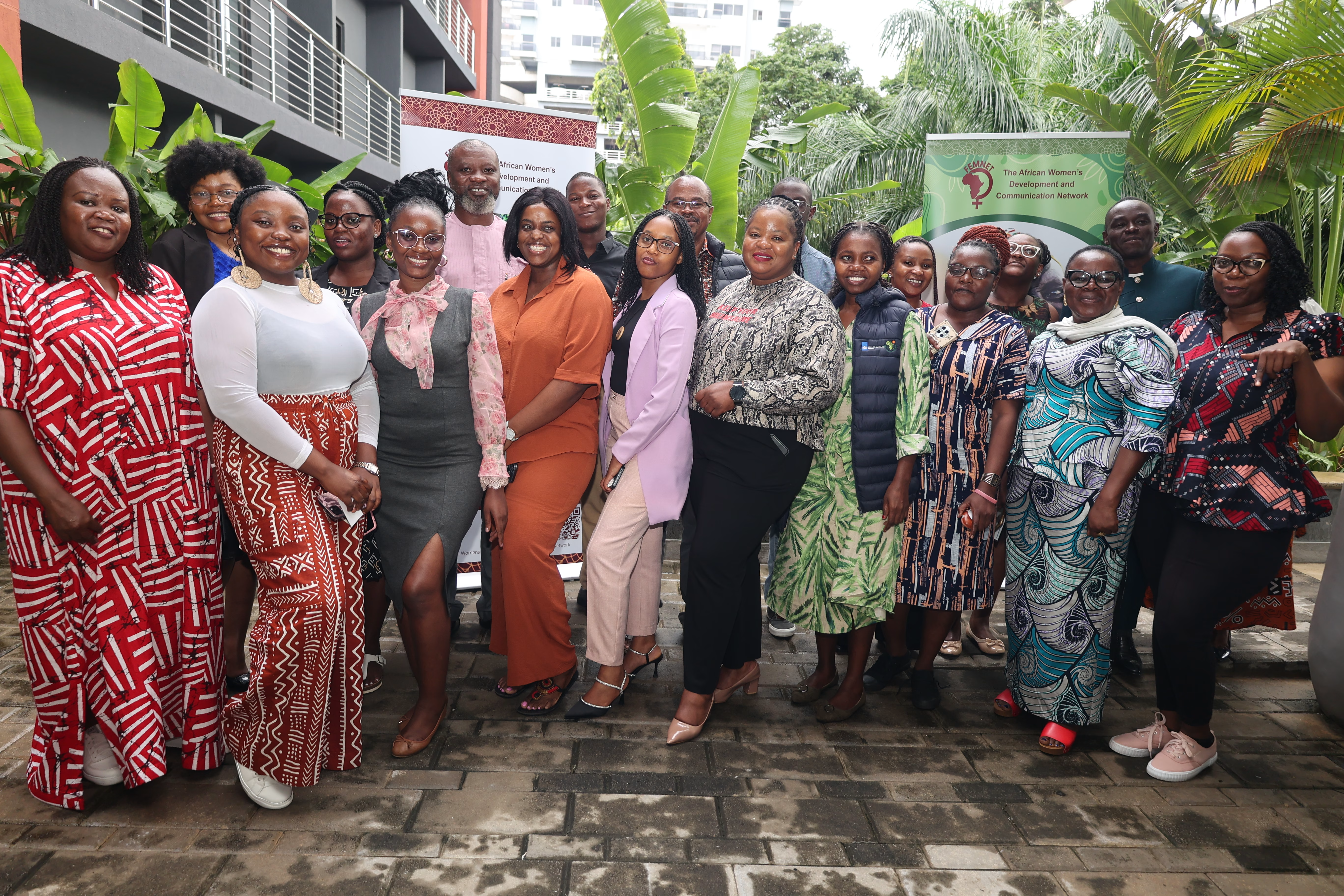
Rewriting the Climate Story: Journalists Trained to Champion Feminist Climate Justice in Africa
What if climate stories from Africa didn’t begin with crisis, but with courage? What if women were no longer cast as silent victims of disaster, but as powerful agents of change? These questions guided the second cohort of FEMNET’s gender-responsive reporting on climate justice training for journalists held in Dar es Salaam, Tanzania, from 13th to 14th May 2025 , under the African Activists for Climate Justice (AACJ) project.
Over two days, journalists from across the continent gathered to sharpen their skills, deepen their understanding, and reimagine the role of media in driving transformative climate narratives. Their mission: to center the lived experiences, leadership, and solutions of African women and girls in climate reporting.
Towards a Feminist Climate Narrative
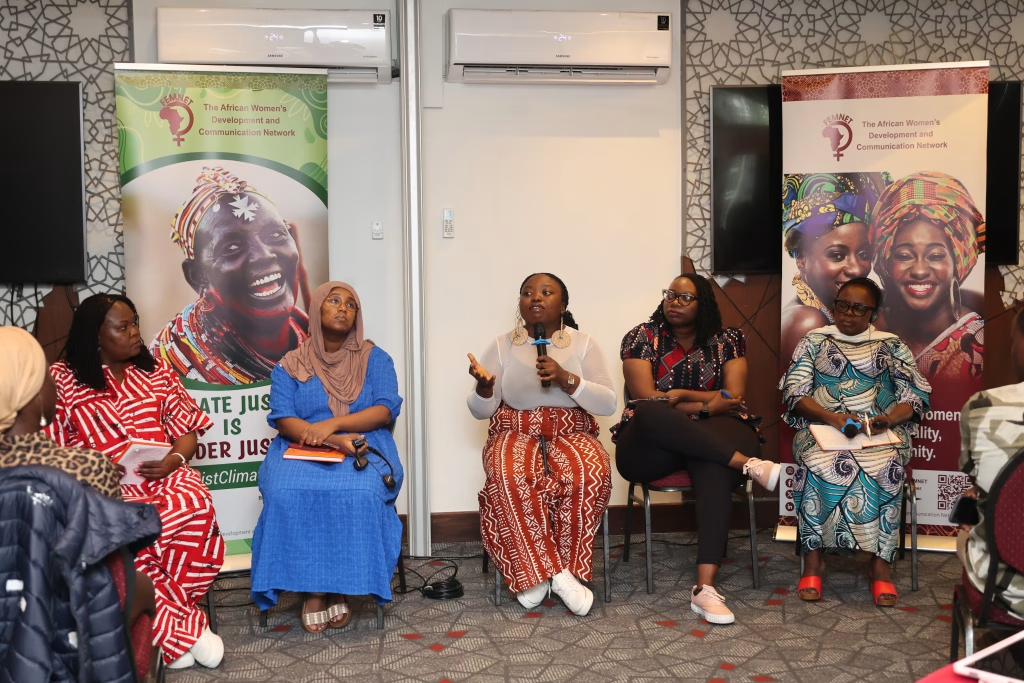
Journalists sharing their lived experiences on climate change reporting during a panel discussion.
Africa is on the frontlines of the climate crisis—but its women are more than its most impacted. They are strategists, farmers, innovators, and frontline defenders of the environment. Yet mainstream coverage often paints them as passive or invisible. FEMNET’s training aimed to disrupt this imbalance.
Through dynamic sessions and hands-on workshops, participants explored how to identify and challenge harmful stereotypes, apply a feminist lens to storytelling, and build narratives that advocate for justice, equity, and systemic change.
“This is about more than just reporting facts, it’s about rewriting the story,” said Mwanahamisi Singano, one of the training facilitators. “We want to see climate narratives that reflect African realities, speak to African futures, and value women’s voices as central, not peripheral.”
Strengthening Media for Climate Accountability
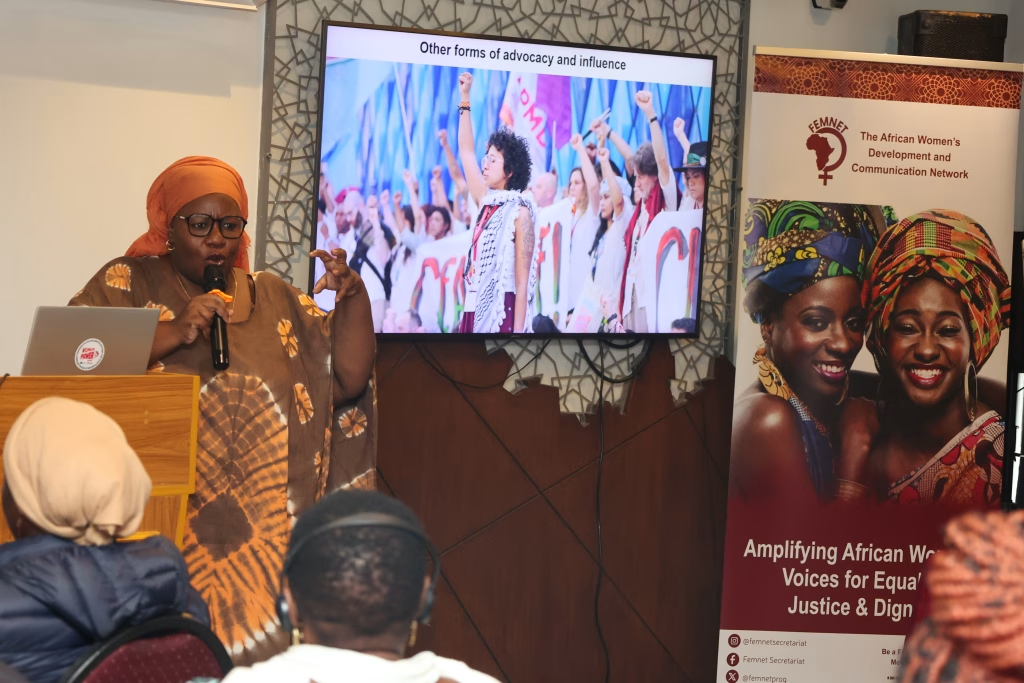
Mwahamisi Singano, one of the facilitators of the Gender-Responsive Reporting on Climate Justice, conducting a session on Just Transition.
Beyond storytelling, the training emphasized the power of the media to hold institutions accountable, governments, corporations, and international bodies alike. Discussions covered pressing issues such as climate finance, just energy transitions, carbon markets, and the implications of Article 6 of the Paris Agreement.
“Prolonged droughts are driving up food prices, increasing food insecurity, and igniting conflict over scarce resources,” shared Titilope Fadare, a journalist from Nigeria. “Women are forced to buy water for irrigation, seek alternative livelihoods, and navigate unsafe environments as herders encroach on farms. These stories deserve more attention and more action.”
The lived realities shared by participants revealed the human cost of climate inaction.
“In 2023, Cyclone Freddy devastated Malawi,” recalled Lily Kampani. “Recovery is ongoing, but resources remain scarce. As journalists, we witness the destruction and resilience. But we also face our limitations, we need stronger technical capacity and tools to cover climate change effectively.”
The workshop provided space for journalists to unpack these challenges and collectively strategize ways to integrate feminist perspectives into traditional and digital platforms, from radio segments to long-form documentaries.
Building a Pan-African Movement
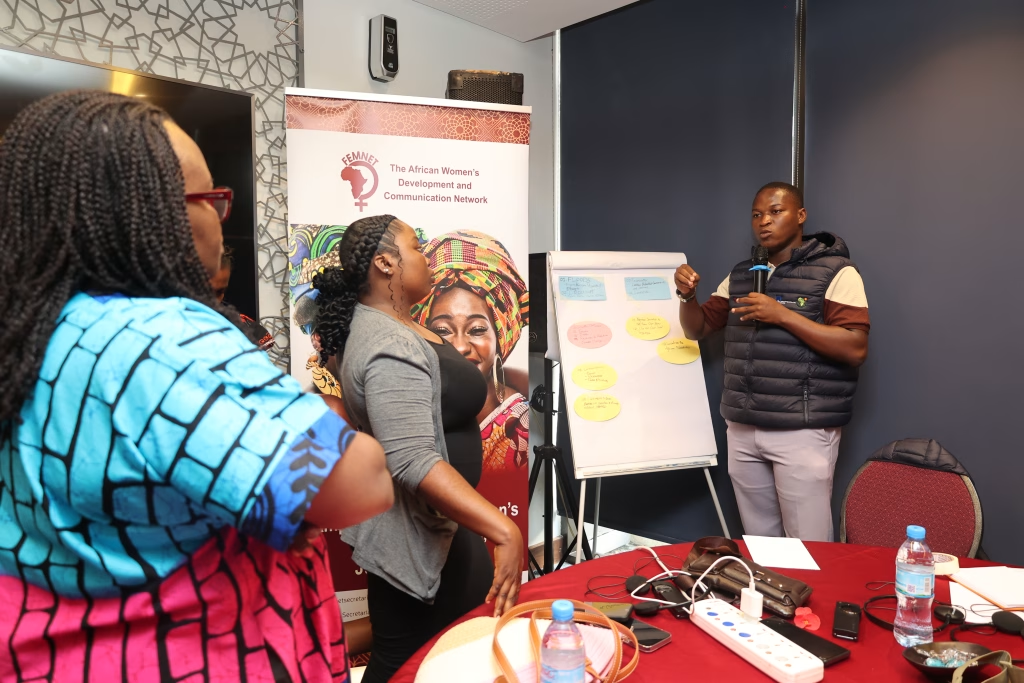
The training was more than a skills-building session; it was a catalyst for the community. By bringing together media professionals, feminist organizers, and climate justice advocates, the event cultivated a growing Pan-African network dedicated to narrative change and solidarity.
“Waste management remains a challenge in the Democratic Republic of Congo (DRC),” said Jeanne Kavuo. “But women are stepping up, turning waste into organic fertilizer, and hardship into hope. These are the kinds of stories we must tell.”
Such powerful examples from the ground inspired renewed commitment among participants to deepen collaboration and amplify African-led, feminist climate solutions.
A Call to Action
FEMNET’s call is clear: African journalists must be more than observers of the climate crisis; they must become storytellers of gender justice, builders of truth, and architects of change. By reporting with empathy, accuracy, and a gender lens, journalists can dismantle harmful narratives and champion the everyday leadership of African women and girls in climate action. Because in rewriting the climate story, we don’t just change the headlines, we change the future.
Related Tags
Related Posts
Aluta Continua: Inside the AACJ Journey of Feminist Climate Justice in Africa
When the African Activists for Climate Justice (AACJ) Project began in 2021, it was driven by a clear
Learn MoreMama Sampy: Championing Girls’ Rights and Education in Mali
At just 22 years old, Mama Sampy from Mali has emerged as a powerful advocate for girls’ rights,
Learn More
